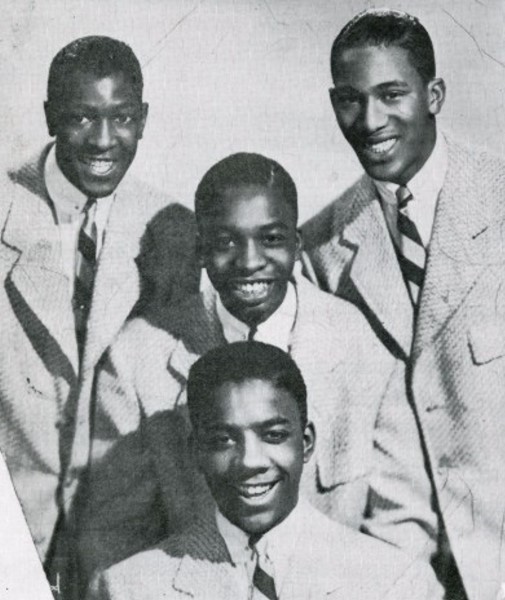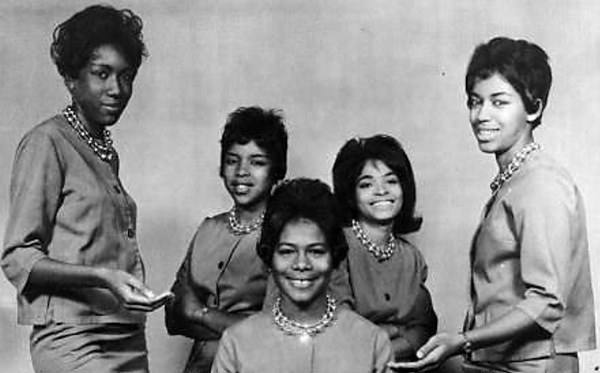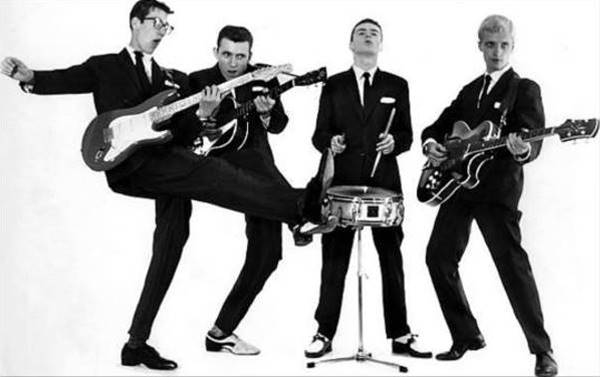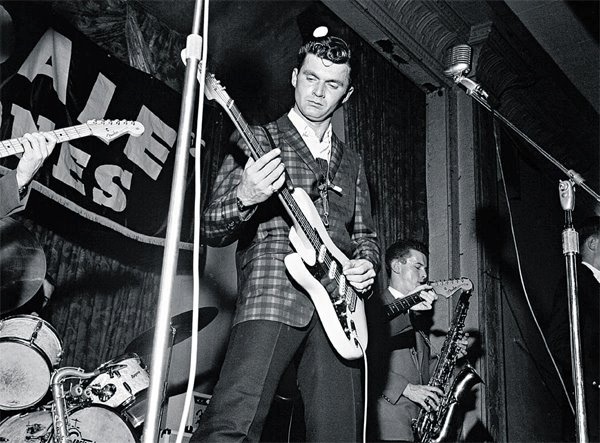
by Gideon Marcus

Galactic Journey is all about spotlighting the exotic, from science fiction to the Space Race. Sometimes, the far out stuff can be found right here on Earth. I'm talking about music, man. Music.
Music is a weird thing. Unlike evolution in animals, which scientists believe is a smooth, unbroken process, music seems to evolve in sudden spurts. A genre will be born, flourish, and then become overripe. That's when another will spawn out of nowhere and supplant the old one.
For instance, in the 30s and 40s, popular music was all about Big Band Jazz. Glenn Miller, Artie Shaw, Benny Goodman, they all peaked pre-War and kept us dancing while our boys (and ladies) went to fight the Axis. After the War, that music evolved into a syrupy, schmaltzy mess. By 1954, the radio was almost unlistenable, filled as it was with crooning and orchestras.

Unless you tuned into the Black stations. There, a fusion of Western and Blues called "Rock n' Roll" was catching fire. The Crows and Chuck Berry were joined by White performers like Bill Haley, Jerry Lee Lewis, and, of course, Elvis Presley. All of a sudden, music was alive again. The late 50s, right around the time I started this column, were an exciting time for listening.

(Don't get me wrong — Jazz was and is still a thing. Coltrane, Gillespie, Brubeck…just look at the recent popularity of Take Five, for instance. But it's for hipsters and hepcats, not for the hoi polloi.)
This may be a purely subjective view, but the 60s seem to mark another transition period for popular music. It seems to be floundering, torn between the classic (and now stale) riffs of the last decade and…something else. Of course, one rarely knows how a revolution will work itself out until its over, but there are a couple of movements might be indicative of where things are going.

On the one hand, you've got The Miracles with last year's popular tune, Shop Around, and The Marvelettes with their brand new hit, Please Mr. Postman. These acts show off the Motown Records sound, a Detroit based mix of Pop and Rhythm and Blues. You can add Bobby Lewis to that list: his Tossing and Turning was probably the hit of this year, and while he now lives in New York, he started his music career in Detroit. To my ears, the music these acts produce sounds fresh, and it may well become the emblematic sound of the '60s.

On the other hand, you've got instrumental music — what people are calling "Surf Guitar." If you're not familiar with surfing, it's wave-riding done on a long, flat board. The Hawaiians made it popular, and it's become an overnight craze here on California's coasts. A certain kind of music has become identified with it, a lyric-less, guitar-intensive sound.
Big acts include Link Wray, The Ramrods, and The Ventures. On the other side of the pond, Cliff Richard and his Shadows have refined the genre to a high art. Dig their hit single, Apache, in particular. And don't forget the Swedish Spotnicks!
Surf music is a big departure from the rock of the '50s. The simple riffs are gone, as are, for the most part, variations on the 12-bar blues (God, may I never hear them again…) In their place are throbbingly energetic, almost raucous tunes. These songs aren't vehicles for words — they are raw emotion, displays of real musical prowess.

I saw a prime example of one of these guitar masters last night, a local talent who still hasn't cut his first single. Dick Dale lit up a Vista stage with traditional and original songs, all sizzling with his instrumental virtuosity. The man is fab.
Maybe instrumental guitar won't be the "in thing" for the decade. It probably requires too much skill, and the audience may be too limited (coastal types). But man alive, I'm sure digging the scene. I hope it lasts a good while, at least!
Next up… a report from Worldcon on this year's Hugos! Will they match my Galactic Stars for 1960?






